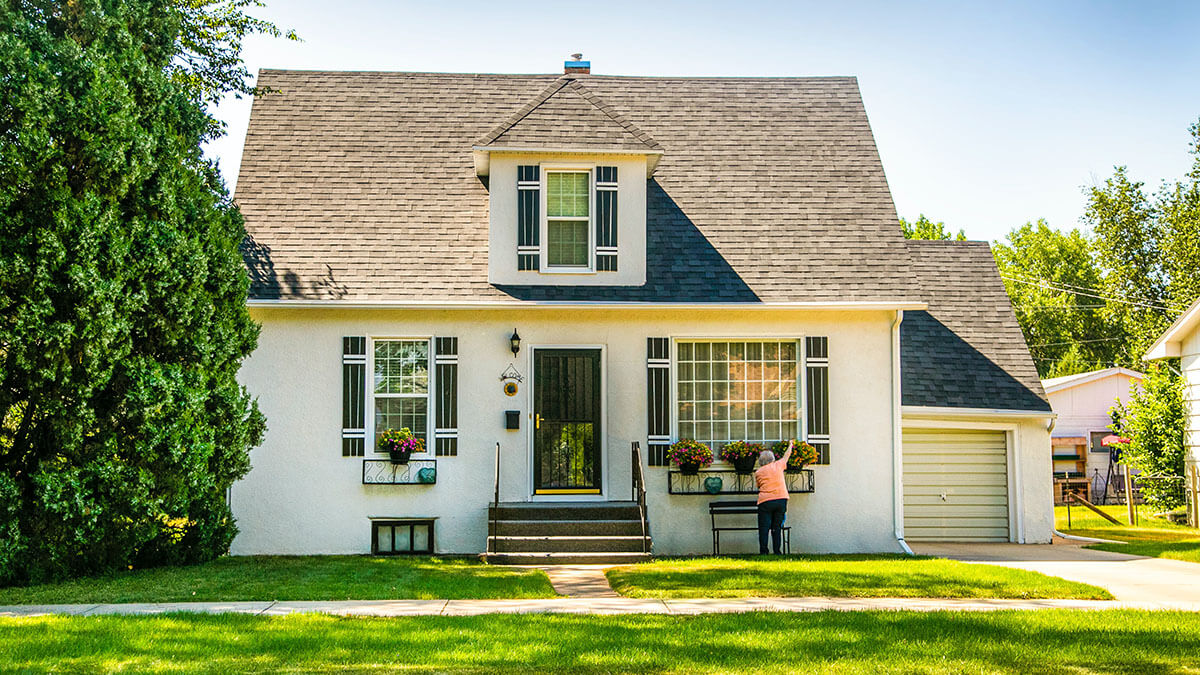Texas has the second-largest population in the United States, with over 30 million residents. The Lone Star State is also one of the fastest-growing regions in the country. Thanks to the strong economy, diverse culture, and warm climate, people move here from all over the nation.
But what does this mean for the Texas housing market? And more importantly, when is the best time to buy a house in Texas? After all, buying a house is a significant investment, and timing can play a crucial role in ensuring you get the best possible deal.
This guide seeks to answer these questions and more. We’ll also show you how you can sell your house fast and hassle-free, regardless of the market conditions.
Discover your home’s worth online for free in minutes!
Optimal Times to Buy: A Comparative Analysis
In Texas, the housing market exhibits certain patterns throughout the year, which can help you determine the optimal time to buy. Understanding these patterns can help you make a smart purchase decision.
Seasonal Insights
Texas experiences a diverse range of seasons, each with its unique characteristics that can impact the housing market. Understanding these seasonal trends can help you make informed decisions and capitalize on the benefits of each season.Summer (June – August)
Summer is the peak home-buying season in Texas, with high inventory levels and increased competition among buyers. While this may drive up prices, it’s also a great time to take advantage of the state’s many outdoor amenities and enjoy the warm weather. If you’re willing to brave the heat, summer can be an excellent time to find your dream home.Fall (September – November)
As the temperatures cool down, the real estate market in Texas starts to slow down. This season offers a unique opportunity for buyers, as motivated sellers are more likely to negotiate and compromise on prices. With reduced competition, fall is an excellent time to score a great deal on your new home.Winter (December – February)
Winter is typically the slowest season for home sales in Texas, but that doesn’t mean it’s not a good time to buy. With lower prices and fewer listings, buyers can often find incredible bargains. Just keep in mind that some sellers may be hesitant to show their homes during the holiday season, so be prepared to be flexible with your schedule.Spring (March-May)
Spring is another busy season in the Texas housing market, with growing inventory and increasing prices. As the weather warms up, more listings hit the market, and buyers can benefit from a more extensive selection of homes. However, be prepared for a competitive market, and don’t wait too long to make an offer on a property that catches your eye.
Monthly Breakdown
While seasonal trends are important, it’s equally crucial to consider the best months to buy in Texas. Here’s a monthly breakdown of the real estate market in Texas, taking into account inventory levels, median prices, and market dynamics.
- January: Low inventory, slower sales, and potentially better deals due to the holiday season.
- February: Inventory remains low, but demand starts to pick up, especially around Presidents’ Day weekend
- March: Increased inventory, rising prices, and a more active market
- April: Steady inventory growth, higher prices, and a competitive market
- May: Peak home-buying season begins, with high inventory, increasing prices, and significant competition
- June: High demand, rising prices, and longer days for viewing homes
- July: Summertime peak, with high inventory, high Texas home prices, and intense competition
- August: Hot summer weather continues, with sustained high inventory and strong demand
- September: Kids head back to school, and the market cools slightly, with decreasing inventory and prices
- October: The fall season brings lower prices, less competition, and motivated sellers
- November: Pre-holiday season sees reduced inventory, lower prices, and a slower market
- December: The Holiday season means limited inventory, fewer showings, and potentially better deals
While every month presents unique opportunities and challenges for buyers in the Texas real estate market, careful analysis reveals that certain months offer better prospects for finding a good deal. Whatever your preference, being aware of the market trends and acting accordingly can help you achieve your goal of owning the perfect Texas home.
Texas Housing Market Predictions 2024
The current Texas housing market trends are presenting a unique set of opportunities for home buyers. With the recent surge in mortgage rates, the competition in the market has decreased, and sellers are being forced to adjust their asking prices. Here are some key trends and predictions that could impact your decision to buy a home in Texas:
Reduced Market Competition
The mortgage rate has reached a record high of 7.70% in over 20 years, putting many potential buyers out of the market. This means that buyers have a better chance of securing their desired property without getting caught up in bidding wars.
Lower Asking Prices
Due to the limited selection of homes available, sellers are feeling pressure to reduce their asking prices. According to recent data, the median price of a home in Texas was $343,500 in December 2023, down from $357,900 in June of the same year.
Flexible Decision-Making Opportunity
High mortgage rates are causing buyers to be more cautious, increasing the average time houses spend on the market. According to recent data, the average time on the market is 55-70 days. This provides buyers with a unique opportunity to carefully evaluate their options and make informed decisions without feeling rushed.
Financial Considerations for Buyers
One of the most important factors that affect the best time to buy a house in Texas is your financial situation and readiness. You want to buy when you have enough savings, income, and credit to qualify for a mortgage and afford the monthly payments.
How Much Can You Afford for a Home?
The first thing you need to do is to determine how much you can afford for a house. A general rule of thumb is to spend no more than 25% of your monthly income on housing expenses, including mortgage principal, interest, taxes, insurance, and HOA fees. You also need to factor in other expenses, such as utilities, maintenance, repairs, and furnishings.
Have You Saved Up for the Down Payment and Closing Costs?
The next thing you need to do is to save up for a down payment and closing costs. A down payment is the amount of money you pay upfront when you buy a house. The more you pay, the less you borrow, which lowers your monthly payment and interest rate. A typical down payment ranges from 3% to 20% of the purchase price, depending on the type of loan and lender.
Closing costs are the fees paid after finalizing the purchase of your house. They include things like appraisal fees, title fees, origination fees, escrow fees, and taxes. Closing costs vary depending on the location, price, and type of property, but they usually range from 2% to 5% of the purchase price.
What Is Your Credit Score?
The last thing you need is a strong credit score. It affects your ability to qualify for a mortgage and get a favorable interest rate. The higher your credit score, the better your chances of getting approved and saving money.
Regional Variations Within Texas
Texas is a large and diverse state, with different regions having different housing markets. Depending on where you want to buy, you may face different challenges and opportunities.
For example, here are some of the median prices for single-family homes for some of the major cities in Texas as of December 2023 :
- Houston: $341,000
- San Antonio: $282,326
- Dallas: $437,374
- Austin: $640,116
Austin has the highest median home price in Texas but also the largest decline compared to last year. This indicates that Austin’s housing market is cooling off after experiencing rapid growth in recent years.
On the other hand, Houston has the lowest median home price in Texas but also a slight increase compared to last year. This suggests that Houston’s housing market is stable and affordable.
Buying Strategies and Tips
If you’re ready to buy a house in Texas, you need to have a clear strategy and some tips to help you navigate the market and find your ideal home. Here are some buying strategies and tips for Texas homebuyers:
Do Your Research
Before you start looking for homes, you need to do your research on the market trends, the neighborhoods, the schools, and the amenities. You can use online tools to find listings, compare prices, and get insights.
Get Pre-Approved
Secure pre-approval at a competitive rate from multiple lenders. Even a 0.5% rate difference can cost tens of thousands over a 30-year mortgage. Be ready to make an offer backed by a qualified rate before shopping for homes.
Hire a Local Agent
Buying a house can be complicated and stressful, so you need to hire a local real estate agent who knows the market and can guide you through the process. Their expertise can save you thousands by offering strategy guidance and insider recommendations.
Be Flexible
Buying a house in Texas can be competitive and unpredictable, so Texas homebuyers need to be flexible and ready to adapt. You also need to be prepared for any challenges or surprises that may arise along the way.
Prepare to Negotiate
This is especially true during off-season months. Prioritize closing the gap between appraisal and sale price with the seller, plus favorable terms related to inspections, furnishings included, and upgrade budget.
Make Your Offer Deadline-Driven
Make your offer deadline-driven with a set expiration date, ideally on a tight 1-3 day window falling on a weekday. Structuring offers with clearly defined deadlines will spur more urgency from sellers.
Impact of External Factors
The Texas housing market is influenced by various external factors, both economic and environmental. Some of the factors that affect the demand and supply of housing in Texas are:
GDP Growth
The gross domestic product (GDP) measures the total value of goods and services produced in a country or region. A higher GDP growth indicates a stronger economy, which can boost consumer confidence and spending power. This can increase the demand for housing, as more people can afford to buy or upgrade their homes.
Texas had a GDP growth rate of 7.7% in Q3 of 2023. This reflects the resilience and diversity of the Texas economy, which has attracted more businesses and workers to the state.
Interest Rates
A lower interest rate makes borrowing cheaper. This can increase the demand for housing, as more people can qualify for mortgages or refinance their existing loans. The opposite is true when it comes to higher interest rates.
The interest rate is determined by the monetary policy of the Federal Reserve, which aims to balance inflation and unemployment in the economy.
The Federal Reserve lowered the interest rate to near zero in March 2020, in response to the COVID-19 pandemic, and kept it there for two years. This helped support the housing market during the crisis. However, the rates have been rising since 2022, resulting in high mortgage rates.
Seasonal Weather Patterns
The weather can have an impact on the buying and selling cycles of the housing market, as different seasons may affect the preferences and behaviors of buyers and sellers.
For example, spring and summer are typically considered peak seasons for home sales. More buyers are willing to search for homes when the weather is warmer and sunnier. In addition, more sellers are willing to list their homes when they can showcase their curb appeal and landscaping.
However, these seasonal patterns may vary by region and market conditions. For instance, in Texas, the weather is generally mild throughout the year. As such, the seasonal fluctuations may be less pronounced than in other states with more extreme climates.
What’s the Best Time to Buy a House in Texas? Get an Instant Cash Offer
There’s really no one answer to the question “When’s the best time to buy a house in Texas?” It depends on several factors, including seasonality, finances, market trends, and more. But if you need to sell fast, iBuyer makes the process easy.
Simply enter your address to receive an instant online value and cash offer. With technology-powered valuations and express closings, iBuyer lets you sell on your schedule. Find out what your home is worth now!




